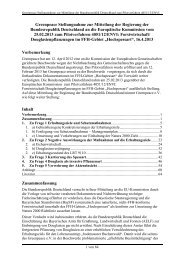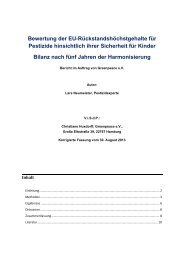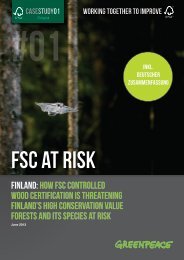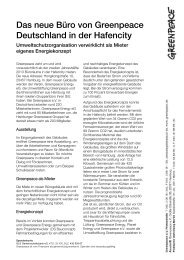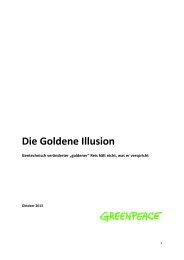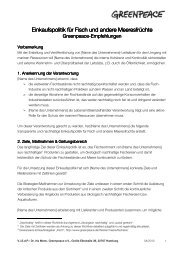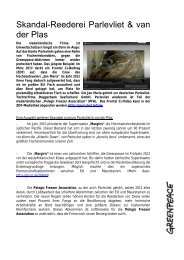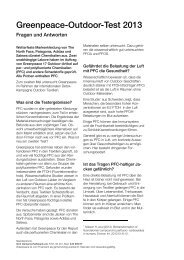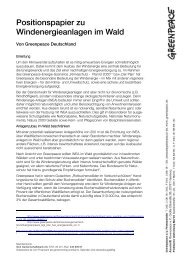Untitled - Greenpeace
Untitled - Greenpeace
Untitled - Greenpeace
You also want an ePaper? Increase the reach of your titles
YUMPU automatically turns print PDFs into web optimized ePapers that Google loves.
48<br />
CARVING UP THE CONGO<br />
‘Social responsibility contracts’ –<br />
the charity of loggers is a poor<br />
substitute for genuine development<br />
In the DRC, as elsewhere in Central Africa,<br />
logging companies frequently negotiate local<br />
agreements (so-called social responsibility<br />
contracts) with customary landowners and<br />
communities as a means of securing their<br />
cooperation. The World Bank – recognising<br />
that forest-dwelling communities will see little<br />
benefit from fiscal reform and tax<br />
redistribution – has pushed for the adoption of<br />
the Forestry Code through which this process<br />
of direct negotiation of services is to be<br />
formalised, and for new agreements to be<br />
brokered with communities by companies<br />
passing the legal review. 275 However, this<br />
approach offers a poor substitute both for<br />
genuine development, and for the policy of<br />
community consultation and prior, informed<br />
consent that is supposed to precede land use<br />
decisions.<br />
Typically, the company will first negotiate<br />
access to the forest with the customary<br />
landowners in return for a small quantity of<br />
gifts or provision of services to the<br />
community. Before logging begins, the<br />
company then negotiates the social<br />
responsibility contract (cahier des charges).<br />
Such agreements, which currently have no<br />
legal basis, typically involve promises by the<br />
companies to provide goods and equipment<br />
and to construct or renovate facilities such as<br />
schools, clinics and wells. They have long<br />
served as a substitute for proper development,<br />
allowing government to wash its hands of the<br />
well-being of forest-dwelling communities. A<br />
forestry sector review for the World Bank<br />
concedes this point:<br />
‘In well functioning States, the State …<br />
provides social services throughout the<br />
country. In the DRC context, the cahier des<br />
©<strong>Greenpeace</strong>/Davison<br />
‘The loggers buy social peace<br />
by negotiating benefits in<br />
kind with the local elites<br />
(official and traditional<br />
authorities) and local<br />
communities. This relation has<br />
often been depicted as “wood<br />
for beer and a football<br />
pitch”.’ 276<br />
Confidential report on Siforco,<br />
2006



